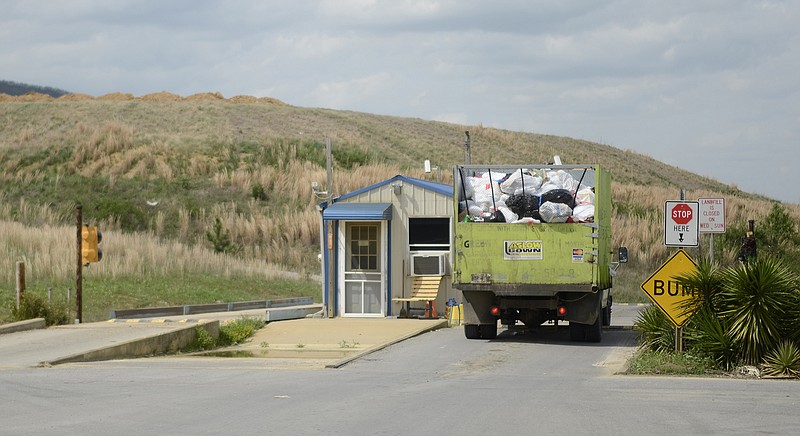There's too much garbage and not enough air in Walker County, Ga. -- in a literal sense.
The county is running out of places to dump trash, so it applied for a loan to expand its landfill. Last week, the Georgia Environmental Finance Authority announced it would provide that money.
The county can draw $800,000 for the project. The loan will come with an interest rate of 3.03 percent, and the county will have to pay it back in 20 years. Assuming the county draws all of the money, it would have to pay back about $270,000 worth of interest two decades from now.
The county might not need the full amount, though. Landfill Director Bill Byrd doesn't yet know how much he will need.
The county's landfill is about 120 acres in a rural spot south of Chickamauga on North Marble Top Road. It houses construction and demolition waste, the type of stuff builders use that does not spoil -- concrete, wood, material like that.
As for the rest of the waste, like the food your family doesn't eat, the county holds it in a transfer station. Then, truck drivers swing by the site and haul away that trash to a landfill in Fort Payne for a fee from Walker County.
If the county doesn't expand its landfill, Byrd said, they will have to start doing the same thing with the construction trash. Landfills can only be a certain height. If the trash gets too high, the county won't be able to use it anymore.
Byrd said the trash in the landfill won't be able to stack any higher in about five years. There's no other option but to expand. The trash currently there is always going to stay there.
"Trust me," he said "It don't go away."
If the county has to stop using its own landfill, people will have to pay more money to get rid of their trash. Right now, Byrd said, a roofer who brings slabs of concrete to the site can drop it off at a charge of $24.50 per ton.
If truck drivers have to haul that trash to another landfill, Byrd said it will cost that roofer $35.50 per ton.
He believes the loan will allow him to expand the site by about 5 acres, though he doesn't know when that will happen. Inspectors with the state Environmental Protection Division have to comb through the location first, make sure it's usable.
"A landfill is a serious construction project," said Ken Simonton, a geologist with the EPD's Environmental Contamination Unit. "It's not just where you go dump trash. We don't let you just dump it anywhere."
The inspectors will see if the site is on flood plains, fault lines or wetlands. They will also see if it's within 500 feet of a domestic water supply, like a farmer's well, or within 2 miles of a public water supply, like a lake.
Because this is an expansion of a current landfill, none of these problems should arise.
Contact staff writer Tyler Jett at tjett@times freepress.com or 423-757-6476.
